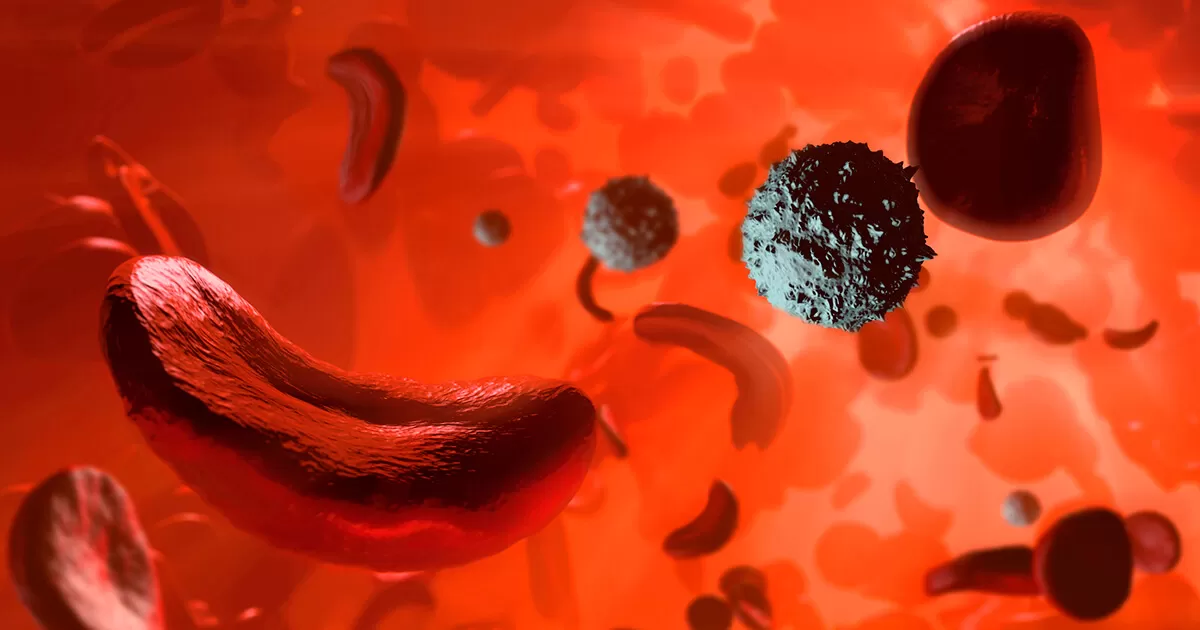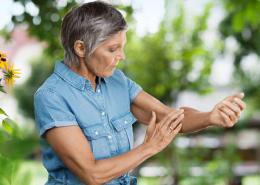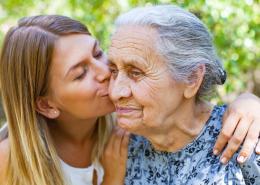How I Became A Sickle Cell Warrior

In Kenya, where I was born, many people are aware of Sickle Cell Disease (SCD), more so than in the U.S. This may be because there is a greater proportion of the population in Africa that has the disease. My older brother and I were both born with SCD. We have also witnessed many people suffer from and lose family members and friends to the disease.
For a long time, I lived in denial about having SCD. As a child, my view of it was very negative; I could not imagine anything positive ever coming from having the disease. I would not admit to anyone that I had the condition. Rather I’d say: “I’m just a carrier. I don’t have the full-blown disease.” In reality, I was scared that I would die simply by telling anyone the truth.
As a young schoolgirl, I experienced many SCD pain crises and was in and out of the hospital quite a bit. By high school, I had become very withdrawn. I attended classes, and then went home immediately to be near my mother, who made me feel safe. I felt that my mother, a single mom with a medical degree, was the only person who could manage my disease. She would ask: How do you feel? How is your pain level? Are you in crisis? Are you drinking enough water?
Becoming a Sickle Cell Warrior
As I got older, I became more active in managing my own disease. I started taking better care of myself and looking after my own symptoms. This seemed to reduce my visits to the hospital. In fact, while I was studying at pharmacy school in Kenya, I had only 2 or 3 major crises.
When I moved to the US in February 2011, I had a difficult time adjusting to the cold weather in New York. Shortly after, I went into a serious pain crisis. While in the hospital, I learned quickly that many healthcare providers, including emergency room personnel, knew very little about SCD. I suffered from excruciating pain going into the hospital and was once faced with the initial refusal of pain medication treatment because the physician wanted proof that I actually did need the medication and wasn’t drug seeking. However, at the time, I was very dehydrated and unable to provide a urine sample for over an hour so treatment was delayed.
This experience sparked a fire in me to want to become an advocate for SCD. I felt the need to educate people, to help bridge the knowledge gap of the disease and to fight the stigma. I no longer wanted to hide behind the untruth that I was “just a carrier”. I realized that I had to become a fighter—a warrior.
Reaching Out to Other Warriors
I entered the Miss Africa USA beauty pageant, a contest that celebrates African women who make a difference in their community, and decided to use my humanitarian platform to talk about SCD. I started my campaign on social media (e.g., Facebook, YouTube) and founded a Kenyan-based non-profit program called the Sickle Strong Initiative to help improve global awareness of SCD.
Shortly thereafter, I was in constant conversation with many other people who suffered from or cared for those with SCD—I like to call them “sickle cell warriors”. I saw that there were many people with the disease who needed support as far as education, information, management tips, and access to treatment.
Ultimately, in 2013, based on my advocacy efforts, I was named Miss Kenya USA and the People’s Princess Miss Africa USA (the contestant with the most far reaching humanitarian platform). Today, I continue to serve SCD warriors and their families.
Live Well and Keep a Positive Attitude
Living with SCD has been a difficult journey. However, over time and with much reflection, I was able to find peace and strength to accept my condition. My mindset about SCD changed, and I stopped seeing SCD as being only a disability but as an ability. The good thing is that I can use my education and background to help others educate themselves about the disease.
I have also learned over the years how to listen to my body and better manage my condition. Many people with SCD ask me for advice on how to manage their disease. I tell them to stay hydrated (I drink about 15 glasses of water every day), eat well, rest, exercise regularly (to keep your lungs perfused and your body strong), avoid being too hot or too cold (I wear warm clothes during winter because NY winters are tough!), see the doctor often, take your medicines, join a support group (the one I go to is filled with people who have a lot of energy), and have a positive mindset. It’s not always easy to keep a positive attitude, but it’s essential for my wellness—and it helps me to keep fighting the good fight!
Marie Ojiambo, B Pharm, graduated from University of Nairobi School of Pharmacy, Kenya, and is currently pursuing a Master’s of Science degree in Industrial Pharmacy at St. Johns University, Queens, NY.
The views expressed in this article do not necessarily represent the views of Pfizer, Inc.





